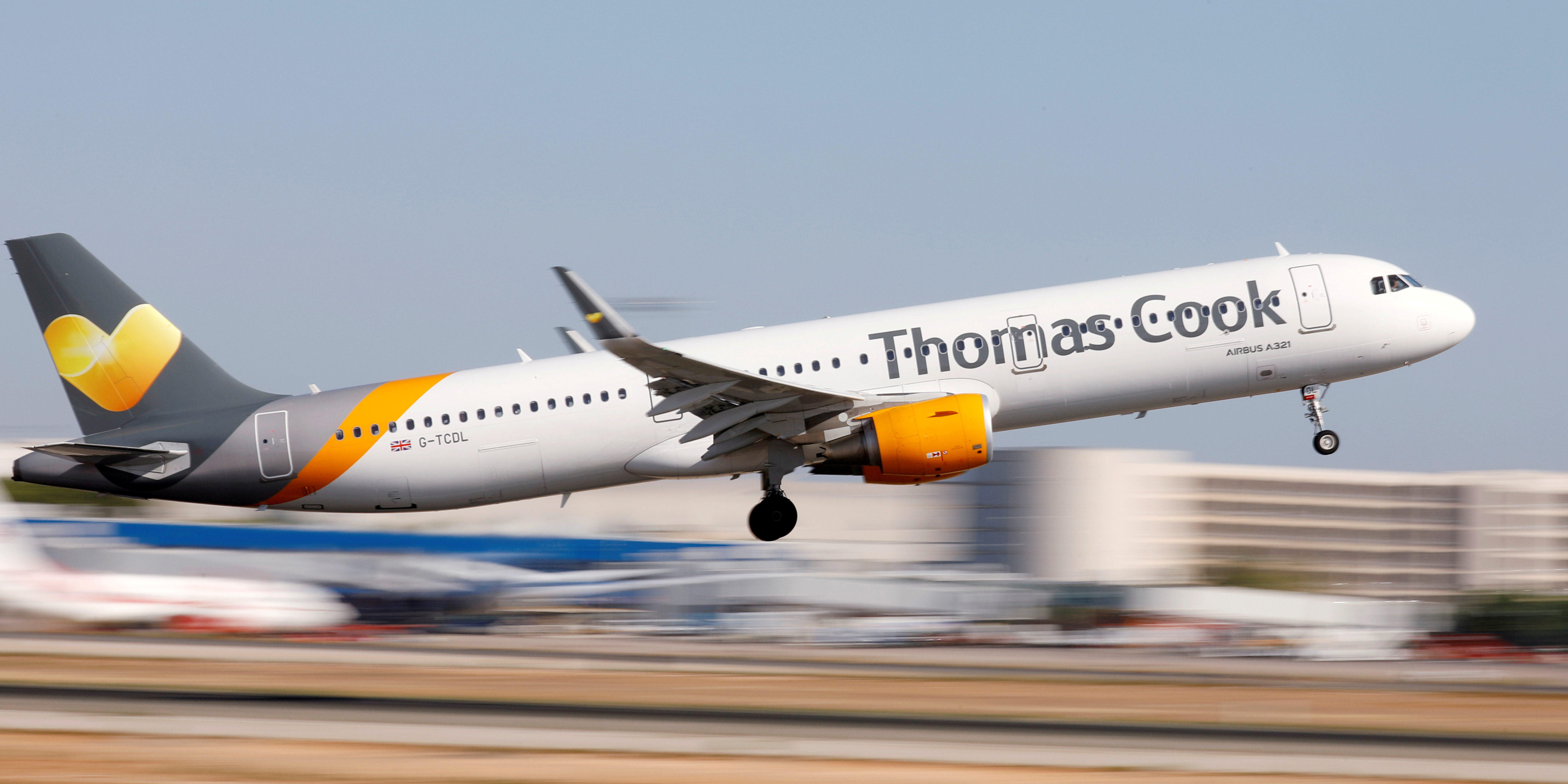- Thomas Cook, the once-illustrious British travel company and airline, declared bankruptcy early Monday morning.
- Before failing to secure $249 million in emergency funding and leaving 600,000 travelers stranded, Thomas Cook was one of the oldest and most respected travel firms in the world.
- Here is a look at the rise and fall of the historic company.
- Visit Business Insider’s homepage for more stories.
Visit the Thomas Cook travel and airline website today and you’ll be met with a simple message:
“The UK business has ceased trading with immediate effect and all future flights and holidays are cancelled.”
After 178 years of being the biggest British name in holiday booking, Thomas Cook has declared bankruptcy. The bankruptcy has left 600,000 travelers stranded and 21,000 people out of work.
Keep reading for a look at the company's rich history dating back to 1841.
Thomas Cook was a Baptist missionary and cabinet-maker in Leicester, England in the 19th century. He was a part of the temperance movement and organized anti-liquor meetings in 1841.

Source: Story of Leicester
The first Thomas Cook holiday was a 15-mile railway ride for temperance movement supporters from Leicester to Loughborough.

Cook hired a train from the Midland Railway Company to transport temperance movement supporters in Leicester to an anti-liquor meeting in Loughborough in July of 1841. He charged the 485 passengers one shilling per person.
Source: Story of Leicester
The excursions to temperance meetings expanded to other nearby temperance societies and Sunday schools. Cook recognized the commercial appeal by 1845, and organized a leisurely tour to Liverpool. It was booked by 1,200 people.

The service's popularity allowed Cook to expand to international travel within the decade.
Cook's son, John Mason Cook, took over the firm in 1879 and ran it for 20 years until his own death; his three sons then took it over for him.
Source: Telegraph, CNN
The possibility of air travel changed the company's scope and approach.

The company's slogan - "Don't just book it, Thomas Cook it!" - propelled the brand to household-name status for budget leisure travel, even after struggling through World War II and becoming state-owned and then privatized again in the late 1900s.
In 2001, Thomas Cook merged with one of Germany's largest travel groups and debuted Thomas Cook Airlines in 2003.
Thomas Cook was known for its low-cost, total-package vacation planning.

The company most recently boasted 22 million customers a year and just over 21,000 employees. The company also had 550 travel agency shops, 40,000 hotel rooms, and 105 airplanes.
The company mainly operated in 16 countries across Europe, North Africa, the Middle East, and Asia.

In a 2019 report issued by the company, Thomas Cook's most popular vacation destinations were listed as Spain, Turkey, and Greece.
Different experiences mentioned as package highlights included visiting banana plantations in the Canary Islands and enjoying local food in Tunisia.
A 2018 report stated that their most popular package was typically seven to 10 nights and highly customizable.
Source: Associated Press
The company almost went under in 2011 when its debt reached $1.24 billion.

It ultimately secured a little over $100 million in necessary funding and was bailed out, The Guardian reported in 2011.
However, in September 2019, attempts to secure $249 million failed, and Thomas Cook declared bankruptcy Monday, September 23, 2019.

Source: Business Insider
The brand was revered by Brits as iconic. Even Richard Branson, the founder of competing Virgin airlines, took to Twitter to acknowledge its demise.

"Saddened to see the demise of Thomas Cook - a firm that had been providing holidays for 178 years," Branson wrote on Twitter on September 23.
Source: Virgin
Thomas Cook's bankruptcy has left 600,000 people stranded at airports and hotels around the world, sparking what Reuters called the greatest peacetime repatriation effort in the UK. It has also left over 21,000 people jobless.

If the 178-year-old brand were to live on in some fashion, the only foreseeable potential buyer is Fosun, a Chinese conglomerate that was the company's largest shareholder, according to the BBC.
Source: Business Insider, NPR, Reuters

